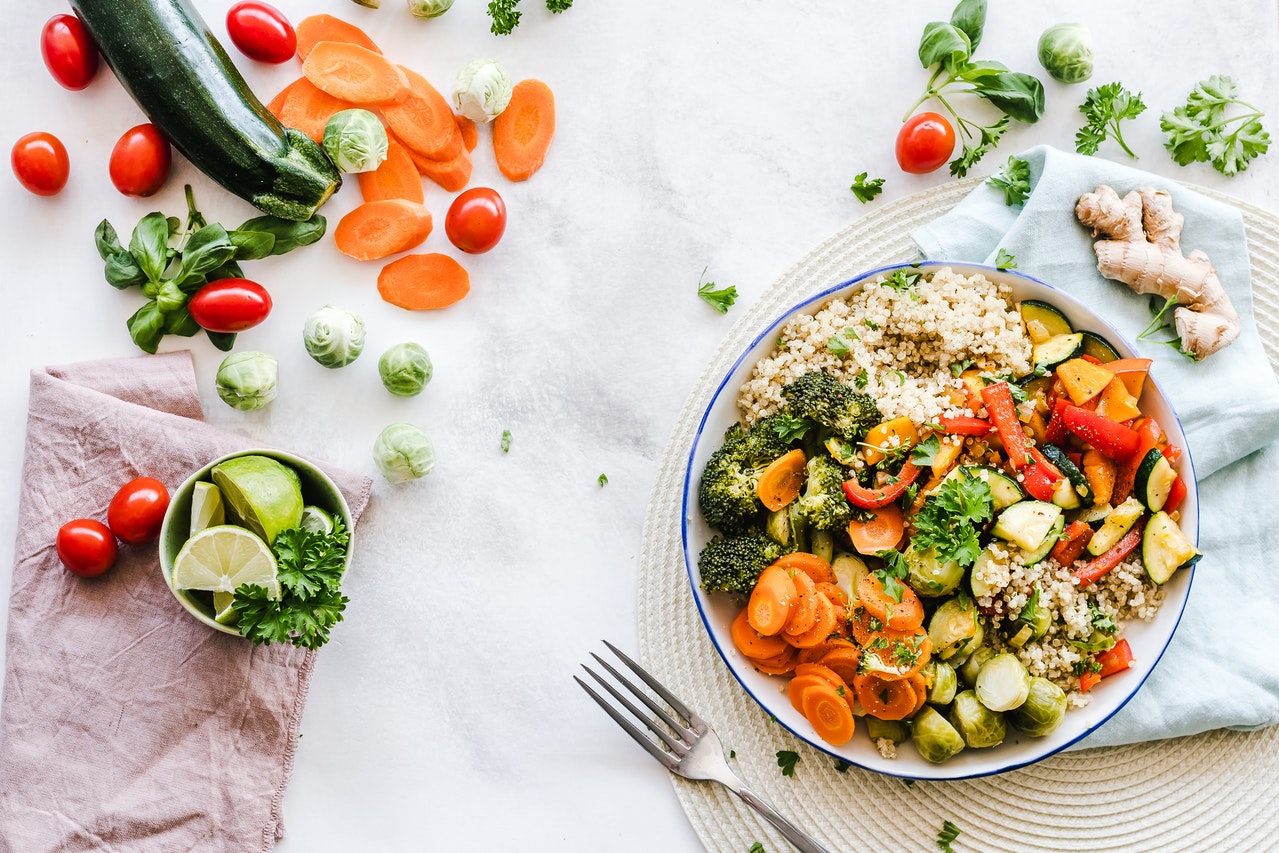Wellness Wheel Intro
Health isn’t just about taking care of your body but about understanding the interconnectedness of different aspects of your life. There are actually 8 dimensions to consider. The Wellness Wheel is a useful visual aid that helps you find balance so you can be your healthiest and most resilient self.
The 8 dimensions of wellness are:
- Environmental
- Emotional
- Intellectual
- Physical
- Social
- Financial
- Spiritual
- Occupational
Physical Wellness
Physical wellness is the most broad dimension on the wellness wheel. It not only includes things like exercise and nutrition but encompasses the integration of physical, mental and spiritual well being. The goal is to listen to and take care of your body through healthy choices. It encourages participation in physical activities that improve endurance, flexibility and strength as well as learning about food and nutrition.
It’s important to write down clear goals for your physical wellness. Are you looking to boost your energy? Manage a chronic condition? Improve your sleep? Use these questions to determine the state of your current physical wellbeing, and areas you want to improve upon.
Check-up questions
- Do you listen to your feelings of hunger and eat regularly?
- Do you stay hydrated throughout the day?
- Are you able to keep a consistent sleep schedule?
- Do you wake up feeling rested? Do you move your body on a daily basis?
- Are you practicing safer sex with condoms and contraception?
- Are you making alcohol, nicotine and other drug choices that align with your values?
- Do you practice healthy hygiene habits?
- Are you at a healthy weight for your height?
- Do you get regular physical exams?
Nutrition
When making food choices, try to be balanced. The goal is to be sensible about what we are putting into our bodies and does not exclude treats in moderation. Here are some suggestions for proper nutrition:
- Eat a variety of foods to ensure a balanced diet and that you are getting important nutrients. This includes fruits and vegetables from the whole rainbow of colors
- Respond to your feeling of hunger and satiation. This will help you with portion control
- Eat slowly and mindfully- be aware of the taste, textures and appearance of your food
- Make time to relax and savor your meals
- Keep your backpack, workplace or dorm room stocked with healthy snacks including: fruit, energy bars, cheese and yogurt
- Make sure that you have enough protein, calcium and fiber throughout the day. Dairy, nuts, leafy greens, beans, fruits, vegetables and whole grains are all good choices.
- Ensure you have enough essential fatty acids for your heart, brain and immune health. If you struggle to fit this into your diet, supplements like fish oil and MCT oil (from coconuts) will work well.
Body Movement and Exercise
Exercise helps us maintain healthy muscles, bones and joints. Physical activity also decreases the risk of certain health problems like high blood pressure, diabetes and heart disease. Because physical wellness includes mental wellness, exercise is able to help feelings of anxiety and depression, and help us handle stress better. Components of body movement include simple routine changes, stretching, strength training and moderate to vigorous exercise.
Simple routine changes
Small changes in your daily routine can have a positive impact on your overall health. Start small and set reasonable goals to add movement into your day.
- Schedule time during your day to exercise. This is a commitment to yourself with the goal of improving your health and well being
- Use breaks in between meetings or classes to take short walks. Bring your coffee instead of sitting in a cafe.
- During breaks, go for a walk and call a family member or friend
- Take the stairs at work instead of the elevator
- Bike or walk to work or class. You can get off the bus or BART a stop or two early and walk the remaining distance
- Shake things up! Vary your movement through activities you enjoy like yoga, dancing, walking or biking
- Don’t force yourself to commit to an exercise you don’t like. Pick a workout that is fun and you look forward to instead of dreading. This makes it a lot easier to commit long term
Stretching
Flexibility helps keep your muscles and joints in good health and reduce your risk of injury. Stretching is an important part of an active lifestyle and improves your circulation and range of motion. Focus on major muscle and tendon groups like the neck, shoulders, upper and lower back, hips and legs. Here are some tips for stretching:
- Take breaks throughout the day for short stretching sessions. If you work at a desk, do slow circular movements like rolling your arms, hips, head and shoulders
- Practice holding a stretch for 30 seconds. This works well with toe touches, hamstring and quad stretches, or shoulder stretches
- Gradually increase range of motion and reach each time
- Remember to breathe while you stretch. This helps deliver oxygen to your muscles Strength training Strength training is very beneficial to your physical health. It improves balance, posture and bone strength. It also makes daily tasks like lifting groceries or walking up stairs much easier.
- Practice muscle strength training at least two days a week and focus on major muscle groups like your abdominals, legs, shoulders and back
- Use whatever type of weight works for you. There are many options including weight machines, dumbbells and barbells, resistance bands and your own bodyweight
Moderate and vigorous intensity exercise
Moderate exercise is achievable for everyone and is a great place to start if you are not used to regular exercise. These activities raise your heart rate and will work up a sweat but you won’t be out of breath. Moderate exercise options include:
- Riding a bike
- Golfing
- Throwing a frisbee
- Gardening or landscaping
- Walking at a quick pace
- Practice yoga
Vigorous exercise will get your heart rate up and you’ll sweat a lot more. You may find it hard to speak more than a few words without needing to catch your breath. Try any of these exercises:
- Swimming in a lap pool
- Kickboxing classes
- Going for a run or a more difficult hike
- Salsa dancing
- Playing basketball or soccer
Illness prevention
Listen to your body and practice recognizing early signs of illness. When seeing your doctor on regular check-ups, share information on symptoms you are feeling, ask questions and participate in decision making about recommended treatment. Here are a few ways that you can practice good health habits to avoid injury or illness:
- Stay home when you are sick to protect others from getting sick too. Don’t go to class, work or participate in social activities
- Frequently wash your hands with soap and water. We encounter germs/viruses from many contact points including touching doorknobs, mobile phones, computer keyboards and more
- Avoid sharing towels, utensils, drinking glasses, etc. Someone might not appear sick in the moment but can be contagious with the flu, a cold, or other viruses
- Limit your sun exposure and always wear sunscreen
- Make use of seat belts and helmets and encourage others to do the same
Alcohol
Part of physical wellness is making choices that align with your personal values in regards to alcohol and other drugs. You can always change your mind day to day. So if you drank yesterday, that doesn’t mean you need to continue to drink today. Saying ‘no’ is part of looking after your overall well being. Practice safe drinking by remembering to:
- Eat food before and during a drinking event. Food will slow the absorption of alcohol and help prevent intoxication
- Spread your drinks out over time, letting your body catch up. On average, the body can metabolize 1 drink an hour
- Avoid alcohol when tired, sick or emotionally upset
- Always know what is in your drink, or preferably, make your own. Never leave your drink unattended
- Know and respect your limits
Sleep
When we are asleep, our bodies work to repair any fatigue and commit what we experienced and learned that day to memory. Sleep protects us from illness and helps to maintain our mental health. A well rested person will be more productive and creative in their work or study. Prioritize sleep by:
- Saying ‘no’ to all-nighters. Sleep will help you remember what you have learned and refresh you for the next day
- Use alcohol and caffeine in moderation because they can interfere with your sleep cycle
- Limit your bed to sleep or intimate activities. Make sure your brain knows to relax in bed by keeping work and your devices out of reach
- Napping can be ok as long as it does not interfere with a proper sleep schedule. Keep your naps short and not too late in the day
Stress
If you take a look at my other blog posts about the wellness wheel, you’ll see that stress can affect every part of your well being. Our bodies respond to stress physically, mentally and emotionally. While occasional stress is a good motivator, like when you are playing sports or meeting a deadline, excessive stress can contribute to illness. Stress affects many of our bodily processes including immune and nervous systems, heart, hormones and metabolism. Common signs of stress:
- Eating issues
- Sleep disruption
- Procrastination
- Mood swings including anger and crying
- Frequent cold or flu
- Substance abuse
Exercise and spending time with people you care about can help you manage stress. Setting boundaries with sources of stress is important. Learn to say no to taking on additional tasks or responsibilities when your schedule is already full. Self esteem is critical for stress management. Know your limits and do the right thing for yourself to mitigate stress in your daily life.
Sexual Health
Sexual health ranges from protecting yourself against STIs and pregnancy, to having a healthy relationship with your own sexuality. Learning to express our feelings and wants is a mind, body and spirit journey. Good sexual health also means respecting boundaries— your own and others. If you, or anyone, doesn’t want to be sexual at the moment, or at all, it’s okay to say no.

